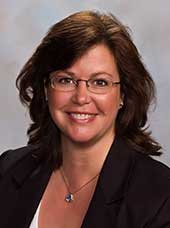9 minutes
Five recommendations to plan for—and achieve—a secure future
Even though women have made some advances in business leadership and pay equity, they and their employers still have work to do—the size of their paychecks is only one factor complicating personal financial management for many women.
A 2018 survey from the Transamerica Center for Retirement Studies warns that the gender gap follows women into retirement. The survey report includes responses from U.S. residents, ages 18 and above, currently working at for-profit businesses with five or more employees. The data demonstrates a significant difference in total household retirement savings between working men, who have amassed an estimated median of $123,000, and working women, who have $42,000 set aside. Furthermore, almost twice as many men (38%) as women (20%) have saved $250,000 or more. The study identifies a variety of underlying reasons for that stark disparity, including “lower income, lesser access to retirement benefits, longer life expectancy, and time out of the workforce to be a parent or family caregiver.”
Here are five recommendations—based on research of influences, practices and attitudes on personal finances and advice from wealth management experts—that can help women close the gap.
1. Invest in developing your financial acumen.
Several recent surveys show a big divide between women and men in terms of confidence in their ability to manage their personal finances. According to the 2018 Millennials & Investing Survey conducted by PNC Investments, 36% of male respondents, but only 19% of females, agreed that they have a solid understanding of how to successfully invest their money.
Along the same lines, the cross-generational Transamerica survey indicates that 55% of women—in comparison to 39% of men—said they “guessed” when estimating their retirement savings needs. The conclusion that guessing implies a lack of confidence in one’s abilities to set and manage concrete financial goals is borne out by another survey finding: Only 54% of women, compared to 69% of men, felt secure about their ability to retire comfortably.
Confidence in your abilities matters when it comes to setting and achieving financial goals. The Arizona Pathways to Life Success for University Students project, a study sponsored by the National Endowment for Financial Education, followed a group of young people for 10 years, from their first year of college into adulthood. The study concluded that the factor most associated with financial self-sufficiency is self-efficacy, the belief in one’s ability to manage money effectively and the confidence that develops from performing financial tasks successfully.

Women recognize that they need to develop their financial management skills, as made evident in the 2018 Retirement Education Preferences Survey conducted by CUNA Mutual Retirement Solutions. Women, who accounted for more than three-quarters of survey respondents, were more likely than men in that survey to identify budgeting and debt management and tools and resources for smart retirement saving as top subjects of interest.
In response to those findings, the retirement education specialists at CUESolutions provider CUNA Mutual Group, Madison, Wisconsin, have been expanding the scope of their support for credit union employees to encompass financial literacy and wellness throughout their adult lives, not just when it comes to making decisions about retirement plan participation, says Susan Reynolds, director/retirement solutions.
“It’s really difficult to be a good retirement saver if the rest of your financial house is not in order,” she notes.
Given their field of expertise, credit union managers and executives may be more financially savvy than peers in other business sectors. Still, Reynolds cautions, “busy executives are sometimes so focused on running their credit unions that they are not giving as much thought to their own retirement, health and financial wellness.”
2. Recognize the need to save for your future.
“Women’s attitudes about spending—which are often associated with caring for other people’s financial and personal security over their own—are sort of ingrained in our culture,” Reynolds says. “People may have grown up with that kind of societal mindset: that a woman’s responsibility, or part of her responsibility, is to help take care of others.”
That mindset may lead women to set aside more for their families and others than for themselves and to take a more conservative, risk-averse approach to investing, she observes. Being a good saver does not necessarily equate to making the best choices to build your retirement portfolio.
Underperforming investments may force women to choose between managing a frugal retirement or working a few extra years, especially if “they did not start saving for retirement early enough or focused on saving for college for their kids rather than for their retirement,” Reynolds adds. She cites some sage advice: “There are no loans for retirement, but there are student loans.”
3. Examine your “money mindset.”
A solid step toward developing strong personal financial management skills is to take an honest assessment of how you think about money and how your subconscious attitudes and priorities may influence your spending and investing habits. For example:
- Do you find it easy or difficult to save?
- How confident are you about your ability to manage your finances and control debt?
- What are your short-term and long-term financial goals, and how do your current spending and saving habits align with those goals?
- How do you like to spend the discretionary part of your earnings?
- Is there anything about your financial habits you’d like to change?
This self-evaluation can help identify what type of guidance you may need to achieve your goals and, in the bargain, overcome another obstacle—the fact that “we are not encouraged to talk openly about money with others,” notes Kathleen Burns Kingsbury, a wealth psychology expert and author of several books, including How to Give Financial Advice to Women.
In an interview with Intuit Mint, Kingsbury defined money mindset as “your thoughts and beliefs about money that impact your saving, spending, investing and gifting every day.”
“Once you are able to understand what feelings and attitudes contribute to your current financial habits, then you are in a great position to decide which ones you want to keep and which ones you want to change,” she says. “Real financial change and health comes from this self-awareness.”
4. Start early and be ambitious about retirement savings.
The gender retirement savings gap starts early. The PNC Investments millennials survey found that women in the demographic group born from 1981 to 1996 have saved an average $66,700 for retirement compared to the average $101,500 among male respondents.
That finding underscores the need for women to take full advantage of 401(k) programs and other retirement benefits offered by their employers at the earliest opportunity. In addition, it highlights the need for credit unions—as both member service providers and employers—to offer financial education.
The CUNA Mutual Group retirement education survey found that “understanding available retirement planning tools and resources” was the leading area of interest among respondents across age groups and genders, followed closely by “financial wellness topics.” That survey also found that people going through transitional periods, from starting their careers to nearing retirement, appreciate more personalized support.
Applying broad strokes to generational differences on attitudes about money, Reynolds cites the rise of the tiny house movement since the early 2000s in comparison to the “McMansions” that were popular in the 1980s.
Many younger adults today may be “willing to forego some material things in order to be able to have financial freedom and security and have the ability to invest and spend their money on experiences and causes that are most important to them,” she notes.
Another generational difference involves preferences for accessing information about money management options and strategies, with younger adults much more comfortable tracking down resources online, she adds.
But they might not be motivated to track down information via any channel. “Retirement is less real for millennials because it’s so far out in the future,” Reynolds says. “It can be harder to engage them in talking about retirement now, so the message may need to be different: ‘What you do now is really an investment in your future self. By setting money aside for retirement now, you’re investing in your own financial independence.’”
Committing to invest for retirement may also help women in their 30s, 40s and even early 50s adjust their risk-averse attitudes: The longer their investment horizon timeline, the more they can take advantage of gains in the market and ride out downturns.
“If you are investing now for an event that is going to happen decades in the future, you have plenty of time to be able to ride the natural ups and downs of the market and to take advantage of the upside,” Reynolds says. “If you’re five or 10 years away from retirement, then you’re looking at being a little more conservative. Otherwise, you are potentially ripping yourself off by being too conservative … when you have the time to be able to make up for any dips. You’re getting all the downside and none of the upside.”
5. Negotiate for benefits that reflect your goals and future expectations.
Managers and executives should take full advantage of any opportunities to advocate for benefits beyond the standard retirement plan, Reynolds advises. “There are additional programs that allow the credit union to really dial in a benefit much more precisely for an individual, but you need to have the courage to bring that up.”
As one example, executive benefit plans offered to recruit or retain high-performing executive-level professionals can be designed to supplement retirement income through the funding of 457(b), 457(f) and/or corporate-owned life insurance programs. “The credit union wants to keep its good, qualified female executives, and those executives may have financial goals, such as catching up on their retirement savings, so it ends up being a win-win for both sides,” she says.
A less-common benefit, but one that may be especially important for women given their longer life expectancies, is negotiating for the credit union to provide or supplement payments for long-term care coverage. Health care expenses represent an increasing share of the overall cost of living later in life, and a significant illness can wipe out savings quickly, Reynolds cautions.
According to the 2018 CUES Executive Compensation Survey, 44.5% of credit union CEOs have negotiated for 457(b) supplemental retirement plans, 34.8 percent are covered by 457(f) plans and 12.3% receive funding for long-term care insurance. Trends in the type of benefits offered are driven by executives who take stock of their financial goals and negotiate effectively for compensation tailored to their individual circumstances.
“Don’t be constrained in asking for benefits by just what the credit union may have done in the past for its executives,” Reynolds advises. “The organization may not have had somebody talking about all the different options that could be available to help keep the executive team on board and reward them for their performance.”cues icon
Karen Bankston is a long-time contributor to Credit Union Management and writes about membership growth, operations, technology and governance. She is the proprietor of Precision Prose, Eugene, Ore.





